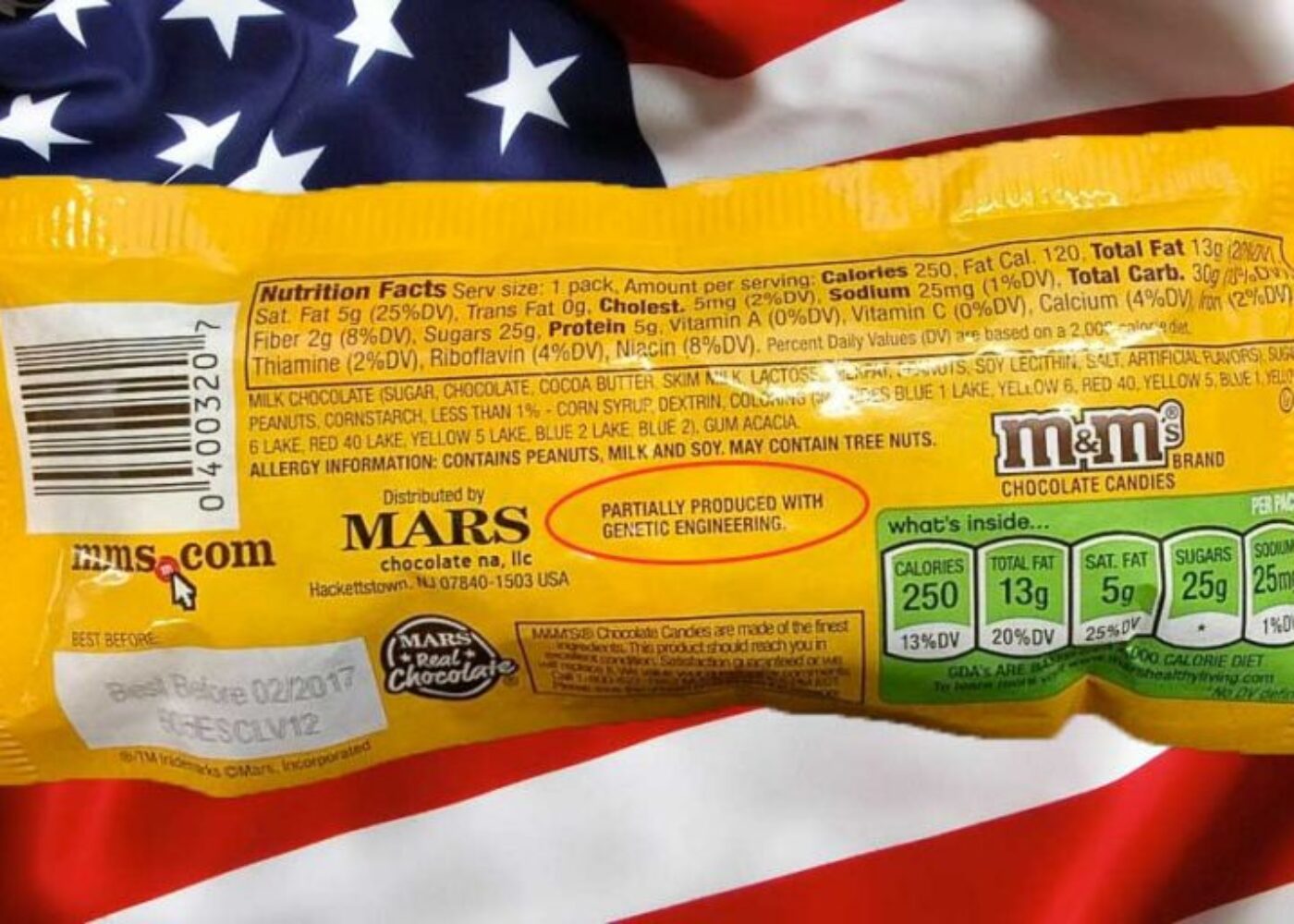Call Congress: Vote NO on the GMO “Labeling” Bill


The last few weeks have left many in the food labeling movement reeling. The New York Times editorial board recently chimed in, as Congress looked to pass “A flawed approach to labeling genetically modified food.”
But today, it is critical. Please call your Congressman TODAY and tell them to vote no on S.764. The number is 202-224-3121.
“This bill, a bipartisan compromise negotiated by Senator Pat Roberts, Republican of Kansas, and Senator Debbie Stabenow, Democrat of Michigan, is being pushed through Congress because some lawmakers from farm states want to pre-empt a Vermont law that requires labeling for some genetically modified foods that went into effect on July 1,” wrote the New York Times.
QR codes and apps to download discriminate against those who do not have access to this technology and the data plans to support it. American consumers deserve on package, GMO labeling. American food companies already have on-package label in place, as seen in the image above.
Today, the House votes to overturn this, to overturn the work done by millions of Americans and the food companies responding to them. As Congress tries to pass this legislation that pre-empts the Vermont law and dismisses the concerns of millions of Americans, we’ve received emails, texts and phone calls from many friends and colleagues asking the same questions:
What is going on? What is your take on this? And what can we do?
When I first learned in February of this year that QR codes were being floated as an idea to label GMOs, I was stunned and expressed deep concern in the discriminatory nature of QR code labeling, the ambiguity around them and then answered and responded to hundreds of calls and emails addressing this same concern from consumers.
I’ve been involved in the GMO labeling movement since the inception of my work around allergen labeling. I’ve been a lightning rod since the publication of my book in 2009, because just as allergens, sugars, proteins and fats are labeled on the package. I believe that GMOs also merit on package labels, as they are currently labeled by American food companies in 64 countries around the world. It’s in every presentation that I give.
With friends and colleagues, we’ve worked on state campaigns, served as spokespersons for the Colorado labeling campaign, created articles and videos to encourage consumers to get involved in this critical work and for several years, I served as board member of Just Label It, from which I resigned in February.
A group of us went to Washington DC this spring with the founder of Citizens for GMO Labeling, and we met with Senators on both sides of the aisles.
Because just like parenting, this work does not stop. For the last 20 years, GMOs have been woven into our food system, and addressing this issue takes tenacity, strength and dedication. We have our work cut out for us to bring transparency to our food system, and we have our work cut out in fixing the financing around it so that clean and safe food is affordable to all Americans who want it.
Consumers are making it crystal clear their feelings about GMOs. According to recent surveys by Packaged Facts, “In a global food and beverage market with retail value in U.S. dollars of more than $5 trillion, non-GMO products accounted for $550 billion of that total in 2014, according to market research publisher Packaged Facts. With sales of $200 billion for non-GMO foods and beverages, the United States accounts for 36% of the overall global non-GMO total.”
According to the Houston Chronicle, “the Food and Drug Administration, which has primary responsibility for food safety, said in a memo that narrow definitions in the bill “will likely mean that many foods from GE (genetically engineered) sources will not be subject to this bill,” including products such as oil made from gene-altered soybeans. The FDA wrote that the bill’s digital alternatives are “in tension” with other labeling requirements, such as those for nutrition.”
The bill throws the jurisdiction of both labeling and the definition of GMOs into the hands of the United States Department of Agriculture, presenting a conflict of interest, given their governance of food and farm policy.
And as I reflected on this legislation yet again this morning, I thought about the organization Mothers Against Drunk Driving. They didn’t try to negotiate a deal between non-alcoholic companies and the alcohol companies, they simply drove change as consumers and concerned citizens.
We have to do the same.
As non-GMO and GMO companies negotiate this legislation, the opportunity shared by millions of consumers is to continue to drive change for on-package GMO labeling.
Consumers, especially mothers, will continue to do push for labels that can be read by their children not a computer.
The companies that understand this, that continue to use the on-pack labels they have already implemented overseas and in response to states’ and consumers’ demand in the U.S., will be the ones who ultimately earn the consumers trust.
Given how many organic companies are now owned by conventional food companies, it’s anybody’s guess who will move first and embrace on-package GMO labeling.
Right now, that landscape is wide open and so is the market share. The CEO who convinces his shareholders that this movement is not going to roll over with QR codes will be the one who ultimately drives shareholder return.
So while Congress may have been sold to the highest bidder, parents haven’t.
Today, it is critically important to take action.
Please call your Congressman TODAY and tell them to vote no on S.764. The number is 202-224-3121.
And click here to tell the President to veto S.764.
QR codes and apps to download discriminate against those who do not have access to this technology and the data plans to support it. American consumers deserve on package, GMO labeling.





